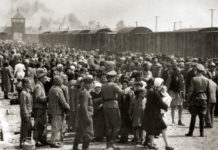
Leadership styles across the world:
To understand leadership and the psyche of a true, revolutionary leader, here’s a sneak peek into the leadership styles that are adopted by the greatest leaders of all time, it can also help you associate with the leader in you and resonate with them, thus bringing out the best. At first, you may deem to resonate with all the leadership styles until you get to the crux of your ability to question the rationality of things. Without further ado, here we go!
- Autocratic style: This infers to the notion that says “do as I say”. It is a command and control sort of leadership.
- Authoritative style: This style illustrates the
“follow me” notion. This style is considered a visionary style. It is a mark of confident leadership where their leader sets a benchmark and allows people to make their choices and latitude on how to achieve common goals.
- Pacesetting style: This style refers to the phrase “do as I do”. It means that the individual is perused into achieving the goals set by the leader
- Democratic style: This is a type of leadership that gives emphasis to the way people opine & the role they envisage for themselves. This is a form of leadership that encourages participation. It is also known as participative leadership.
- Affiliative style: This style of leadership puts the emotional needs of the people first. The leader bridges the gap between the members in order to make them comfortable and work without inhibitions to achieve goals.
- Laissez-faire: This is a type of leadership style that is at the opposite end of the autocratic style. The leader trusts people under his roster to accomplish the tasks given. It sets out the fledgeling inside you!
To be a great leader, the first step is to know yourself. Agility is the key in a conundrum. Considering the most pronounced cultural value of the Germans, that is performance-orientation, we should understand that there are high levels of uncertainty avoidance and assertiveness pervasive as inherent traits in every human being.
A glance of the German government and the pervasive leadership:
Germany is a federal municipality republic with two legislative houses. Its government is headed by the chancellor or prime minister who is elected by a majority vote of the Bundestag or Federal Assembly upon nomination by the head of the state.
Federalism can be defined as a form of government in which entities such as states or provinces share power with the national government. Federalism is a check and balance of state and federal government’s rights. There are several types of federalism, including dual federalism, state federalism and new federalism. Some of the scenarios of federalism include:
- Not allowing a state to pass a law or bill that contradicts federal laws.
- The federal government, exercising control in the times of crises by funding the states or aiding military, and other essential services.
A simple historical perspective on leadership:
Considering the history of the events, conflict and controversy seem to be built into the German culture as well. German leadership approach can be seen as ” a tough on the issue, tough on the person”. It explains Germany’s economic accomplishments in the 20th century.






































